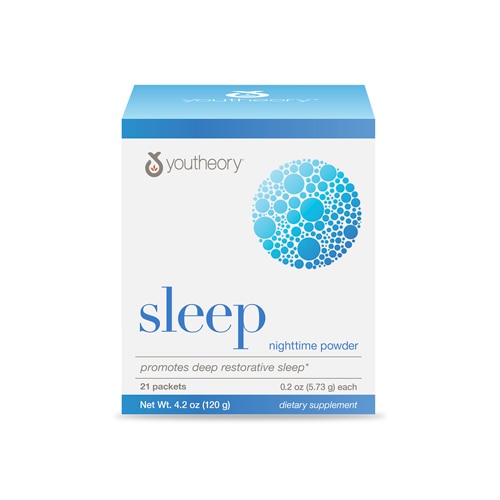Our dream life gets about as much respect as single-use disposables: We sleep, we dream, and we promptly “throw out” the contents upon waking. And while sleep physicians focus on the importance of good sleep hygiene, not too many experts have ventured into a conversation about the importance of dreaming. As a result, nobody notices that we are as much dream-deprived as we are sleep-deprived.
What happens to us when we lack a dream life? Although paying attention to dreams may sound woo-woo, at best irrelevant and at worst delusional, this dismissive view can leave us bereft of purpose and meaning—two qualities that have a profound influence on our quality of life.
Rubin Naiman, Ph.D., a sleep and dream expert at the Arizona Center for Integrative Medicine at the University of Arizona, sums up our cultural attitude to dreams: “Today, too many of us view dreams the way we do stars — they emerge nightly and seem magnificent, but are far too distant to be of any relevance to our real lives.”
When researchers give dreams any credence at all, it’s usually as a data dump: a clearinghouse of the day’s useless memories and a place to process the valuable ones. Researchers consider dreams a form of mental purging, whose main function is to help us forget. Yet since ancient times, many argue that dream content is actually meaningful.
Dream loss is soul loss
However, most contemporary dream theorists believe that to forget is to miss the point. We can glean a great deal from our dreams, they say, by reflecting on them. A growing number of dream experts say that dreams are one of the most powerful tools we have to help us clarify what matters to us most and thereby make our lives better.
For example, Harvard psychology professor Deirdre Barrett, PhD, author of The Committee of Sleep: How Artists, Scientists, and Athletes Use Dreams for Creative Problem-Solving—and How You Can Too, says “Dreaming is thinking—just in a different biochemical state. It's a mode of contemplation that's much more visual, intuitive and emotional, as opposed to the patterns of waking thought.
Still not convinced that your dreams have anything valuable to say? Here are three health benefits that come from daring to dream.
1. Overall health
Naiman believes that “many of our modern ailments are due to dream deprivation rather than sleep deprivation.” Still, poor sleep and poor dreaming are inextricably connected: Naiman correlates a lack of dream with a lack of REM sleep—the most essential and beneficial kind of sleep.
But dream deprivation goes beyond mere lack of sleep. Often dream loss is tied to excessive alcohol use or commonly prescribed REM suppressive medications, such as anti-depressants, lithium and amphetamines. Naiman attributes a lack of dreams to “wreaking havoc on the public health by contributing to illness, depression and an erosion of consciousness.”
2. Emotional intelligence
If you want an out-of-the-box antidepressant, look no further than your dreams. According to Naiman, dreams are the most potent antidepressant known to man. Dreams can act as portals to other perspectives, other emotional responses, that may seem beyond our ken but our actual indicative of untapped potentials in our psyche.
So don’t get hung up on a dream’s kooky quality.
According to a New York Times article on nightmares, “Current empirical and clinical findings indicate that emotions and dream characters are the two elements of a dream most worthwhile exploring.” Even the late, world-renowned sleep researcher, Robert McCarley, who was credited with developing a theory of dreams widely interpreted as robbing them of intrinsic significance, saw much to value in dreams. His more scientifically rigorous analysis of dreams concedes that the brain, when dreaming, generates images related to life that can help dreamers gain insights about their habitual attitudes. And an article in Time magazine quoted him as saying “[Dreaming] may be a way of processing emotionally relevant information.”
Many experts agree that if you can get past the dream’s bizarre, cryptic language and decipher its message, the content leans to brutal self-honesty—a quality often hard to find in waking life. Once you crack the code, you may find dreams reveal more than they conceal. Lauri Quinn Loewenberg, a member of the International Association for the Study of Dreams and founder of thedreamzone.com., says "When you start connecting dreams with your waking life, you're able to see yourself and your true inner thoughts much more clearly."
3. Resilience
Dreams can also be a portal to creative problem solving. Extensive research suggests that our perceptual processes are markedly enhanced during dreaming. We step into other characters, other perspectives, other aspects of our self. We take in a disturbance in the force, and our dreams take that disturbance and transform it into a correction, a way to get ourselves back into proper alignment with our soul. This allows us to be in touch with a generous source of creativity—another name for spirituality—and accounts for dream’s adaptive function.
Sleep researcher Rosalind D. Cartwright, author of The Twenty-four Hour Mind: The Role of Sleep and Dreaming in Our Emotional Lives, has this to say about how dreams foster resilience: “This melding of new and old memory fragments modifies the network of emotional self-defining memories, and thus updates the organizational picture we hold of 'who I am and what is good for me and what is not.'
In this way, dreaming diffuses the emotional charge of the event and so prepares the sleeper to wake ready to see things in a more positive light, to make a fresh start. This does not always happen over a single night; sometimes a big reorganization of the emotional perspective of our self-concept must be made—from wife to widow or married to single, say, and this may take many nights.”
Many studies confirm that dreams can help us problem-solve, directly or indirectly. One study at Beth Israel Deaconess Medical Center, for example, tracked people engaged in navigating a maze. During the session, participants were given a break. Those people who took a nap and happened to dream about the maze showed a ten-fold improvement on the task in the next session compared to the other subjects.
Depending on our receptivity, dreams can help us access a kind of intelligence not normally available to us. Early to bed, to sleep perchance to dream, may make us not only wealthy, but also infinitely wiser—if we can listen to what our dreams are trying to tell us.




